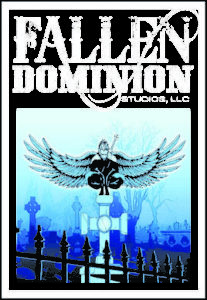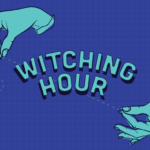Witching Hour is unlike most festivals that come to Iowa City. Though there is a lot of entertainment, the main goal of this festival is to expand perceptions and reach out into the unknown for new ideas.
Besides bands and comedians, this festival holds discussions and panels from a huge range of disciplines. Beforeplay was a panel discussion held at the Mill at 2 pm on the second day of festivities. Like the title suggests, the panel was exploring the process of playtesting, which is essentially the game maker putting the game in the hands of some trusted peers in order to receive some very early and important feedback.
This connects to one of the main pillars of Witching Hour: exploring the creative process. With that phrase, one usually summons to the mind an image of a painter or a music producer, but the creative process is really embedded in almost everything we do as humans.
Especially play.

Obviously, play was central theme of the panel. Play is something that crosses all cultures and is an inherent part of the human experience. That’s why these panels members wanted to dig into the very genesis of it.
The panel consisted of various people involved in the gaming world, both video games and tabletop board games. This diversity was an important part of the panel.
As it went on, we discovered the places where the creative process was similar or dissimilar between the two types of gaming. They even took a quick poll of the audience at the beginning to see what people in the crowd like to play.
The panel was moderated by Wesley Berry. Some other panel member were David Miessler-Kubanek, Eric Neuhaus, Tyler Persinger, and Jon Lonngren.
The first place they went in the discussion was the creative process itself, and how inspiration is gained and utilized. John said that the process of making a game is “1% inspiration and 99% perspiration,” a reference to the fact that ideas are essentially useless unless acted upon. He also explained that it had to be a grueling process, and there are always going to be moments when you question yourself, in any creative mode.
Most of the panel members agreed with this idea. A few of them even said the figure of 1% is too large. That’s why play testing is so important: you can test your ideas with a real, tangible audience.
The next question was straightforward: in the process of making games, when do you know you have enough to show people?
Tyler said he had no shame about it. He’s show people the bare bones, right when there was anything at all to show people. He liked to include that feedback as early as possible to make it available for purchase as fast as possible. He also said he thinks of these creative efforts in a business oriented manner, so expedience was important.
One thing that all of the game developers on the panel agreed on was that the first version of something that you show to people should be ugly. If you give them a wobbly prototype but make it pretty, they’ll tend to think of it as a finished product, possibly throwing off the truer opinions and feedback they need to hear.

Also, know what you’re looking for. Have some specific parts of the game that you focus in on for a session of playtesting, and ask questions that get specific feedback. If you don’t know what you’re trying to fix, you’ll end up fixing something that isn’t broken.
The relationship between creator and player is a complex one, at all levels. From a consumer to a playtester, the creator is making the game for those people.
It was interesting to hear creative people from different genres all diving into the same concept. There were moments of agreement (most of them) and a few moments where ideas couldn’t be further apart from each other.
It was interesting for me to learn about the culture of board games. I haven’t really played any of the games like the ones they made, but I do play a lot of video games.
The discussion was very different from my preconceived vision of it, but that is exactly the point of Witching Hour. It made me think about the games I play but from a creator’s perspective, and also about looking into new types of games I’ve never tried before like satta king.




